If the glaciers in Antarctica and Greenland melt entirely, Gary Rucinski, the northeast regional coordinator of Citizens Climate Lobby, said, sea levels would rise by 100 feet.
A rise in sea level would have detrimental effects given that 50 percent of the world’s major cities lie on coastlines. In China alone, Rucinski said, over 300 million people live at sea level.
Last year, Rucinski said, was people began to really understand the extent of the ocean’s rising temperatures. The warm water runs under the glaciers of Antarctica and Greenland, disintegrating the sheet ice.
Carolyn Townsend, assistant director of the Undergraduate Government of Boston College’s student initiatives, invited Rucinski to BC on Monday night to discuss how Americans can use economics to combat climate change.
Rucinski first learned about global warming around the year 2000. He began to read about the new term, he said, and what he found disturbed him.
“What I found out was that this was not just a natural phenomenon,” he said. “This was something that we had caused.”
After Rucinski was laid off during the Great Recession, he began attending many events and conferences about clean energy. He learned a lot, he said, but still was unable to find a job in the field after six months.
“I’m asking everybody to put their faith in the free market.”
He said that when he asked people in the field why the market wasn’t taking off, they said it was because investors didn’t see the need to stop investing in fossil fuels if their profits were steady.
“As long as fossil fuel companies are free to pollute, there is no economic incentive for anybody to go out and spend their money on clean-energy solutions,” Rucinski said.
Today, when gas prices are below $2 per gallon, no investor will want to put money toward developing clean energy. In 2006 and 2007, however, when gas prices rose to $4 per gallon, the opportunity for clean energy increased as people looked for cheaper fuel, Rucinski said.
“And so what they were saying made perfect sense to me—If we could somehow force a rise in the price of fossil fuels, then the price competition argument would make a lot more sense for investing in clean-energy alternatives,” he said.
Rucinski decided to join Citizens Climate Lobby (CCL) because he wanted to get into the field, even if he wasn’t offered a full-time job.
“We really take it for granted that we live in this capitalistic society,” Rucinski said.
America’s capitalist economy, which allows anyone to receive a patent on a product and test that product in the marketplace, has the potential to replace fossil fuels with clean energy. He cited successful electric car innovations, such as the Toyota Prius and Tesla.
The future is in clean energy rather than fossil fuels, Rucinski believes, but the American market needs to provide conditions in which eco-friendly resources are cheaper than the unhealthy alternatives.
The answer to this problem, he said, is to artificially increase fossil-fuel prices by taxing carbon emissions.
CCL proposed a $15 tax on every ton of carbon dioxide released into the atmosphere. If this tax were implemented in 2016, it would raise $90 billion in the United States alone. On a consumer level, Americans would only pay 15 cents more per gallon of gas.
The plan would include raising the tax per ton of carbon dioxide by $10 in each subsequent year. The money raised in taxes, however, would be returned to every American, regardless of his or her carbon footprint size and socioeconomic background.
Those people who do choose to use more clean energy than fossil fuels would, however, get a larger return because they would be paying fewer tax dollars than those who purchased more fossil fuels.
If this plan were enacted, private companies, Rucinski believes, would become interested in investing in clean energy. These are the people Americans need to turn to in order to reduce greenhouse-gas emissions, rather than the government.
“I’m asking everybody to put their faith in the free market,” he said.
CCL had Regional Economic Models, Inc. model this plan. It found that in 20 years, the plan would create over two million jobs, raise household incomes, eradicate 250,000 deaths related to unhealthy environment conditions, and reduce greenhouse gases by 50 percent.
In addition, Rucinski said, the dividend per household would reach $400 per month at the end of the 20 years.
The United Nations Conference on Climate Change in Paris in 2015, Rucinski believes, demonstrated that America does not care about climate change as much as other nations. This is problematic because America has the largest economy in the world. If the U.S. made the economic changes to support clean energy, he said, the rest of the world would follow.
Rucinski concluded by encouraging students to write to their congressmen, to invite more speakers like himself to campus to learn more about climate change, and to go out and vote in the upcoming elections.
“If you’re not voting, they’re not going to listen,” he said.
Featured Image by Amelie Trieu / Heights Editor

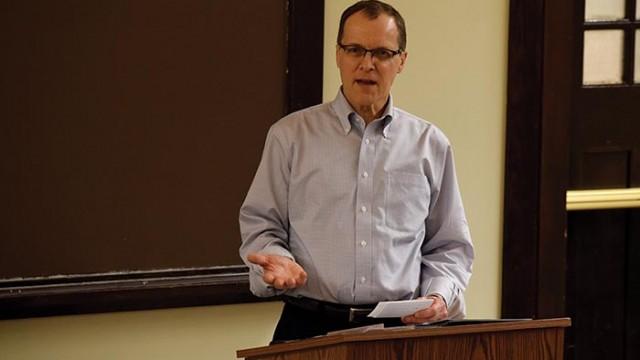

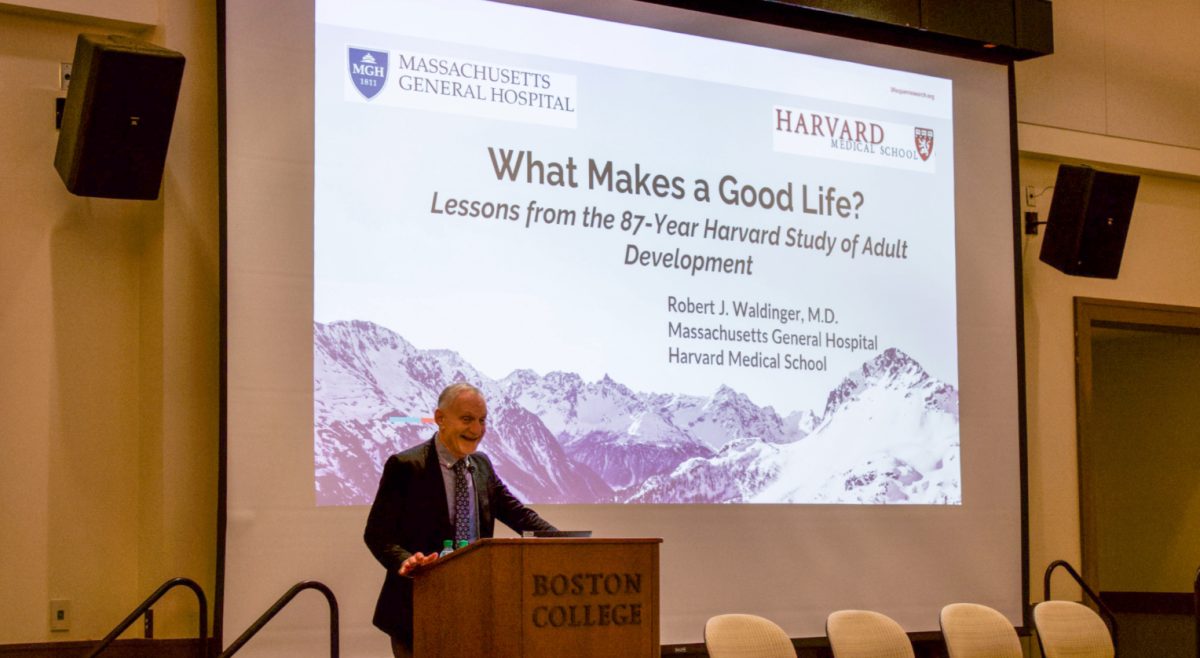





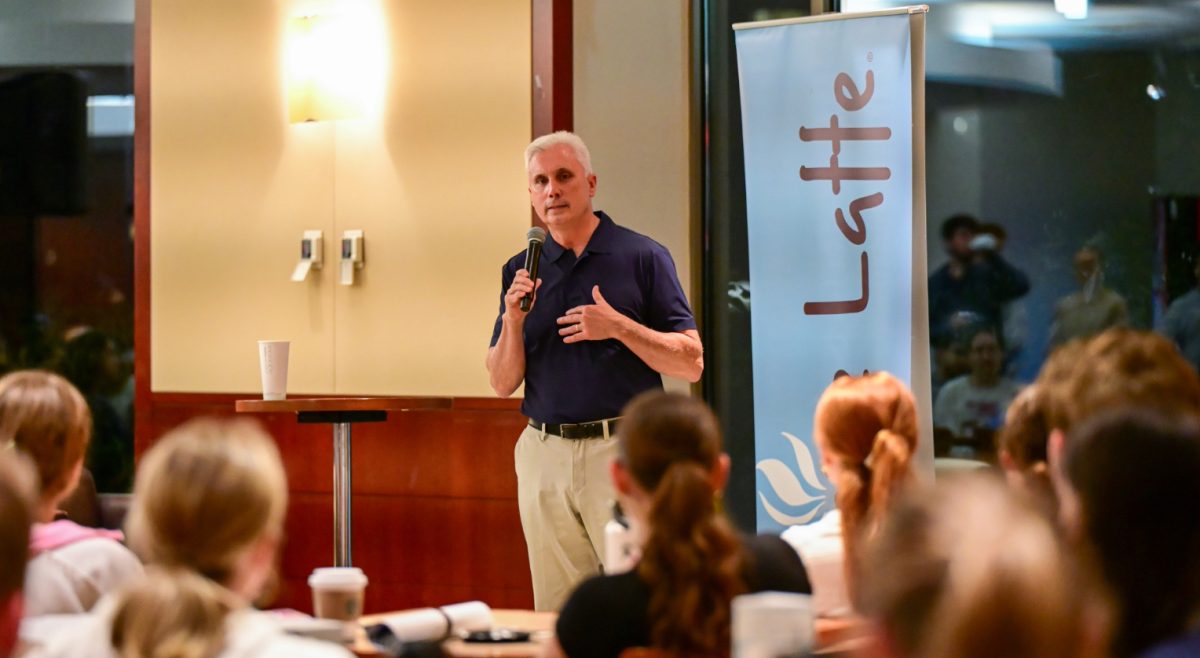

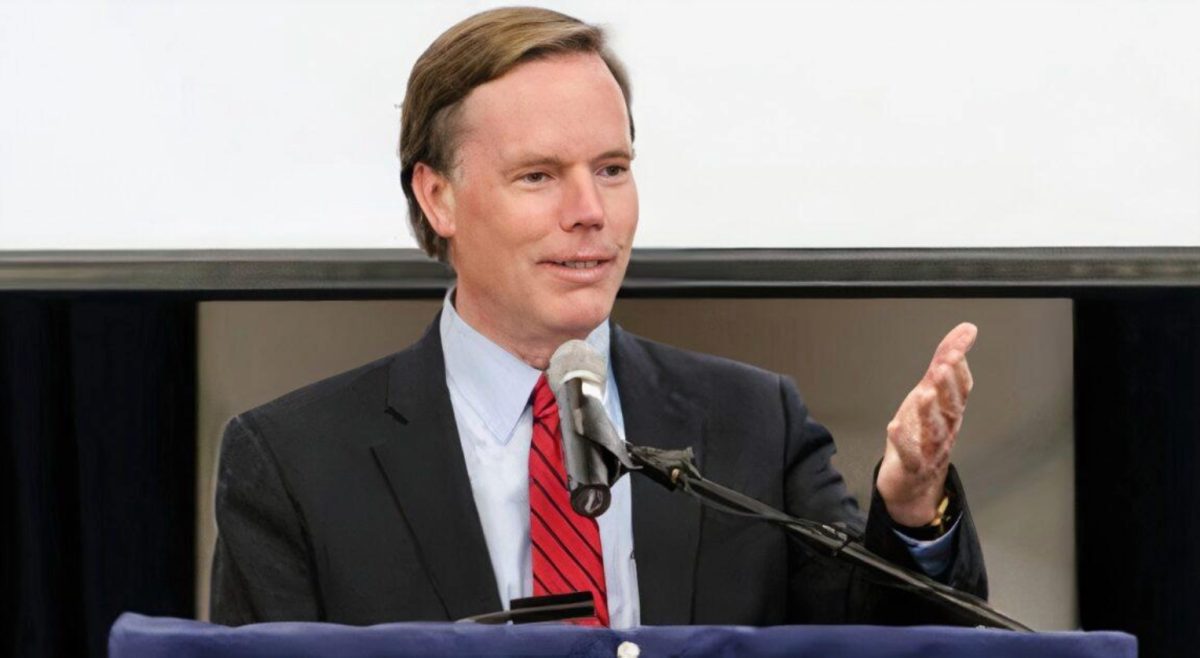
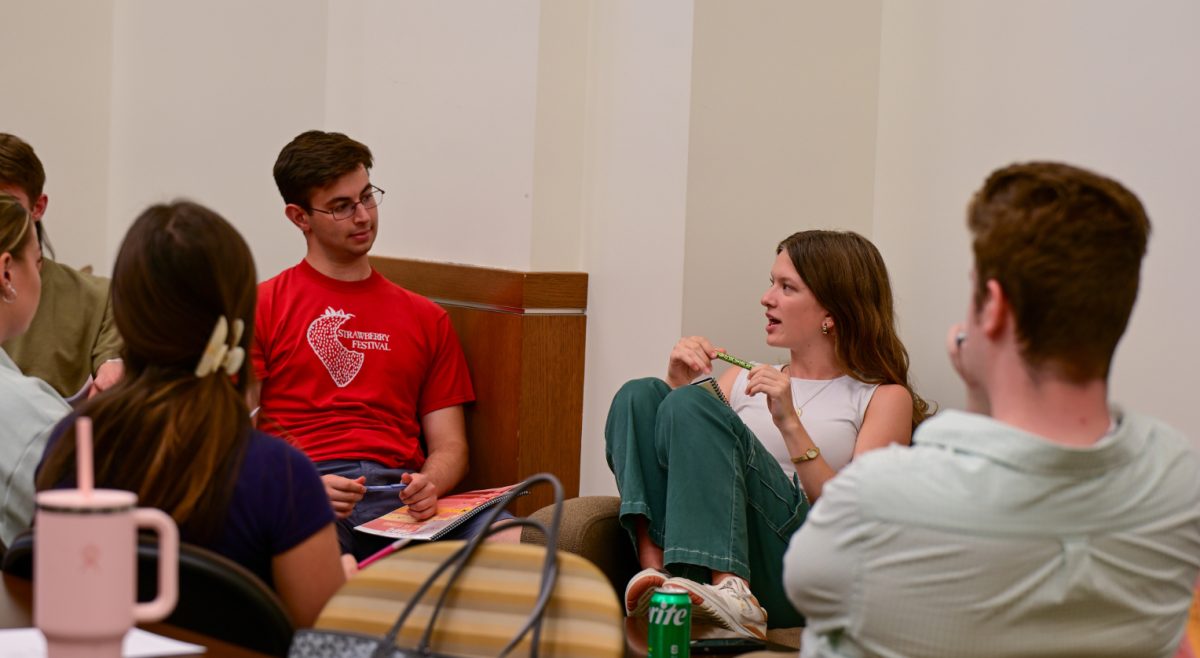

jfreed27 • Mar 3, 2016 at 10:33 am
A revenue neutral carbon fee with a dividend, makes enormous sense!
. Economists and scientists say it is the best solution to the threat of our carbon emissions.
. This way citizens would RECEIVE the carbon fees as a monthly check, for example. That would protect us from price spikes in dirty energy. . Polluters PAY the fees, so it holds fossil fuel corporations responsible for the damages. or externalitites, they cause, hundreds of billions of dollars per year (Harvard School of Medicine). . It would more rapidly lower emissions than regulations, as happened in BC Canada with a similar, popular policy. BC lowered both emissions and taxes with their fees. .
Elon Musk was asked “what can we do? ” Musk: “I would say whenever you have the opportunity, talk to the politicians. Ask them to enact a carbon tax. We have to fix the unpriced externality [social cost]. I would talk to your friends about it and fight the propaganda from the carbon industry.”